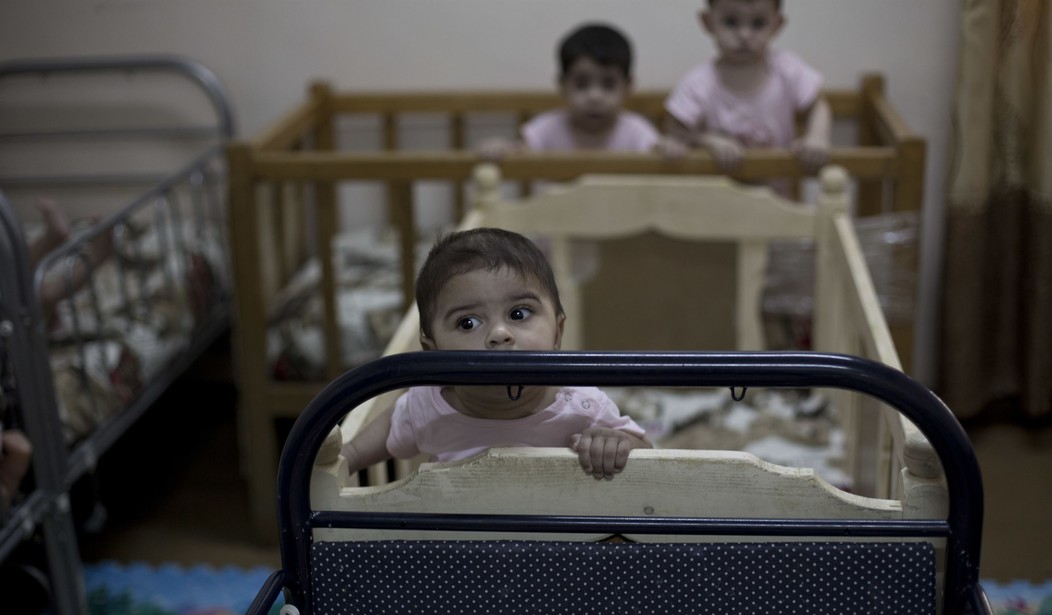In the abortion debates, the polarized discussion often focuses on death. Which is a shame, as foster care and adoption are important, even crucial, parts of the pro-life platform.
In "No Way to Treat a Child: How the Foster Care System, Family Courts, and Racial Activists Are Wrecking Young Lives," Journalist Naomi Schaefer Riley highlights leaders "in a foster-care revolution happening across the country, even in some places you might not expect" using a "combination of evidence-based practical help and spiritual support."
As one example, Riley takes readers to Journey Christian Church in Greeley, Colorado, where 100 or so people are attending a foster-parent training run by Project 1.27, which was launched by a pastor and now run by a foster and adoptive mother. The name comes from James 1:27, about looking after orphans and widows in their distress -- a verse that has lit a fire under many large evangelical churches in the last decade to strategically mobilize their communities in service of this cause. At that particular training, around each table sat eight or 10 chairs, and around them were a foster couple -- in one case a single woman -- and at least four other adults who constituted their practical and spiritual support system. "Some have brought their parents and adult siblings; others have come with their grown children, or co-workers, fellow church members, and neighbors," Riley writes.
Those volunteering as foster parents through Project 1.27 complete 20 hours of training. Jason and Michelle Watts have fostered eight children, adopting one at age 12, about a decade ago. Their adopted son had behavioral issues, as is often the case, because of his "nightmarish upbringing with his biological parents, which included being starved." He's had run-ins with the law, but they are hopeful and are ready to open their home again. They find the faith-based training invaluable, even though they've been state-trained in the past and have fostering experience.
Recommended
Project 1.27 and groups like it that are part of the More than Enough movement associated with the Christian Alliance for Orphans, which both motivates and equips families to welcome children with often severe trauma into their homes. The goal of More than Enough is to get at least one family in 10% of churches in the United States involved in foster care.
As Riley points out, foster parenting is difficult: About half of foster parents quit during their first year because they do not get the kind of training and support groups like Project 1.27 provide.
Charity Hotton of Utah Youth Village explains how confusing foster children can be as "they love you one minute and then they hate you the next." These faith-based approaches seek to avoid "disrupted adoption" -- where after months or years with a family, a child is sent back to foster care.
When they were previously fostering, the Watts family had a neighbor who would greet their biological daughters but shun their adopted son. And the church they attended was not welcoming toward foster children, treating foster parents as the child-welfare system tends to: as babysitters, not parents. In their current church, of about 100 families, at least six are fostering. "It may seem like a small number," Riley writes, "but when everyone knows someone engaged in this work, it can change the whole community."
In "No Way to Treat a Child," Riley issues a challenge that should motivate the rest of us. "Plenty of problems likely will not be solved in our lifetimes: poverty, racism, international conflict. But in the wealthiest, most enterprising, and most generous country on Earth, finding safe, loving, and permanent homes for our most at-risk children should not be among them."
We are getting into a heated season for the abortion debate -- which too often is all about adults and not the child who has a right to not just life but love. Let's work together to find solutions for children, families and communities. We have the resources. It's possible. It's happening. More of it, please.
Kathryn Jean Lopez is senior fellow at the National Review Institute, editor-at-large of National Review magazine and author of the new book "A Year With the Mystics: Visionary Wisdom for Daily Living." She is also chair of Cardinal Dolan's pro-life commission in New York. She can be contacted at klopez@nationalreview.com.
























Join the conversation as a VIP Member